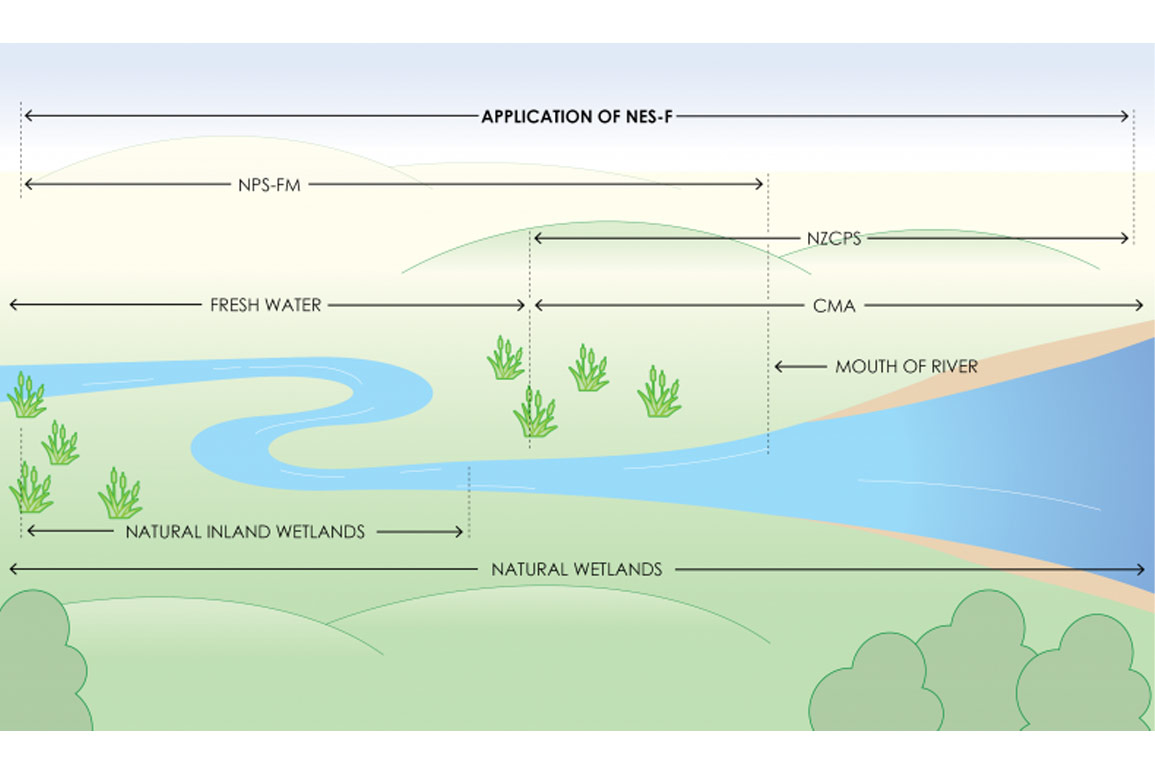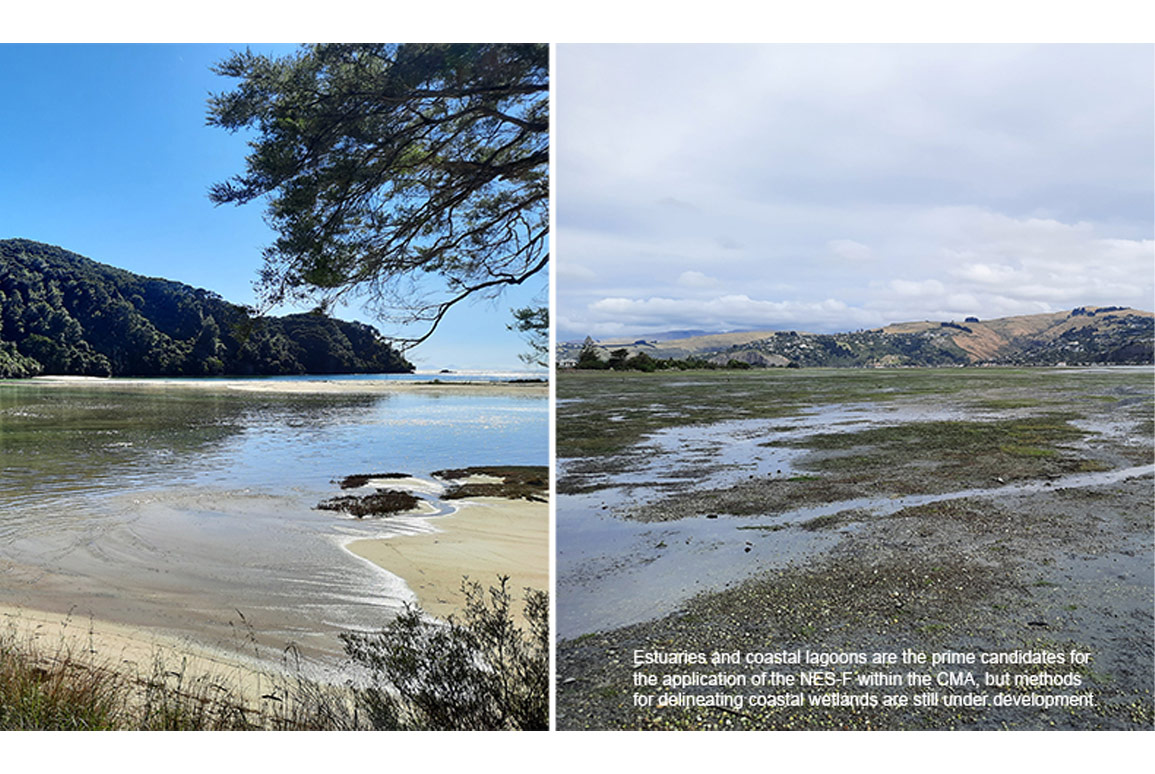You Need to Know: Freshwater Standards and Salty Wetlands
24 May 2022
You'd think that the National Environmental Standards for Freshwater only apply to freshwater systems. But they don't.

A recent High Court decision¹ confirmed that the National Environmental Standards for Freshwater (NES-F) applies to wetlands that are both inland and within the Coastal Marine Area (CMA).
The issue arose with the release of the National Policy Statement for Freshwater Management (NPS-FM) and the NES-F together as a “freshwater package”. The two documents are closely interrelated, but present subtle differences in terminology. The NPS-FM and its policy direction refer to natural inland wetlands, a definition which expressly excludes wetlands within the CMA. NES-F, on the other hand, predominately uses the broader term natural wetlands, which largely relies on the RMA definition of wetland and does not expressly exclude wetlands within the CMA. Noting that both definitions are contained with the NPS-FM.
This sparked a debate as to whether the NES-F regulations extend to wetlands within the CMA. Tested initially in the Environment Court² followed by the High Court, it has been confirmed that the NES-F does apply to natural wetlands in the CMA. This decision recognises that wetlands are not confined by an arbitrary line and must be treated as systems that may traverse both coastal and freshwater environments.
This decision poses a new set of challenges for the management of activities within the CMA. The High Court has stated “with reasonable confidence” that wetlands would not encompass the entirety of the CMA. Coastal habitats connected to freshwater, like estuaries and coastal lagoons, are the most obvious examples of wetlands within the CMA., but, taking a literal interpretation, the definition of natural wetland could apply to a much larger proportion of the CMA. Unlike for natural inland wetlands, methods for delineating the extent of wetlands in the CMA are not yet available.

This High Court decision has implications for a range of activities undertaken within and adjacent to coastal wetlands. For example, the NES-F has regulations requiring 10-100 m setbacks from natural wetlands, and around earthworks, vegetation clearance, and the taking/discharge of water. Regulating such activities through a “one size fits all” approach in freshwater and coastal environments may not be straightforward. The regulations in the NES-F focus on hydrology-based thresholds through terminology such as “drainage” and “partial drainage”, which may be difficult to effectively measure in tidal environments and may not indicate meaningful effects in ecosystems adapted to fluctuations in their hydrology. There is likely to be more direction to come in this space.
A further challenge is the overlap with the higher order planning direction between the NPS-FM and the New Zealand Coastal Policy Statement. While both policies aim to protect indigenous ecosystems, the policy direction differs; the NZCPS requires that adverse effects on threatened and rare indigenous ecosystems are avoided, while the NPS-FM requires that adverse effects are avoided where practicable through the application of the effects management hierarchy. It will be interesting to see how this may play out in a consent process, particularly for wetland systems that traverse into the CMA.
Overall, although the High Court decision provides clarity in some ways, it also raises several questions that will require further direction from Central Government. Boffa Miskell has experienced ecology and planning practitioners who work across both inland freshwater wetlands and coastal wetlands within the CMA. We are well placed to respond to the new directives, and we are already helping clients to navigate these new challenges.
[1] Minister of Conservation v Mangawhai Harbour Restoration Society Inc [2021] NZHC 3113
[2] Bay of Islands Maritime Park v Northland Regional Council [2021] NZEnvC 6
For further information please contact Dr. Tommaso Alestra, Charles Horrell, Dr. Tanya Blakely or Dr. Sharon De Luca

